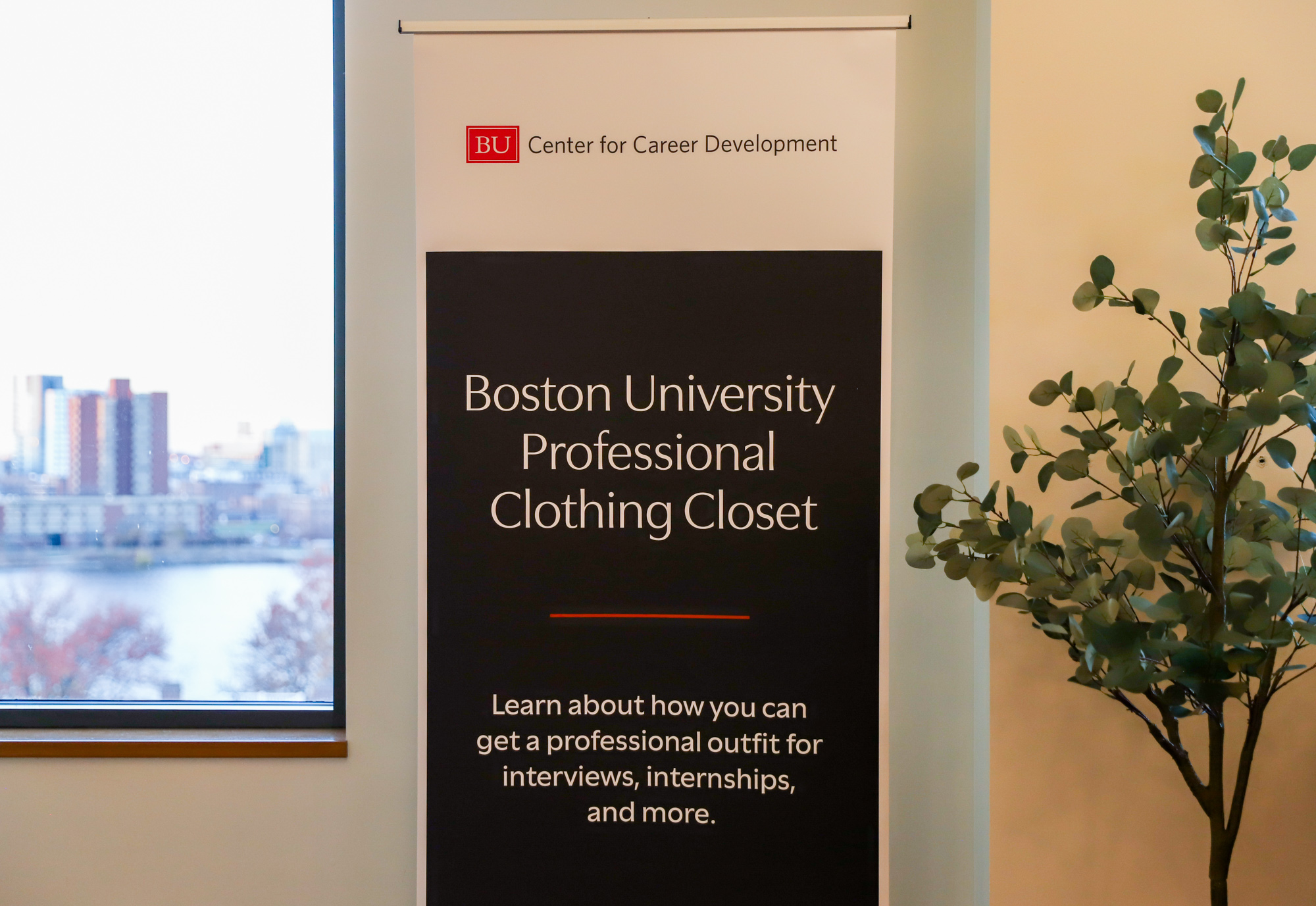The Center for Career Development’s Professional Clothing Closet reopened for the semester, switching from an in-house, donation-based closet to an external vendor, allowing a one-month rental of six clothing items for $60.

The Professional Clothing Closet was created in March 2022 by first-generation student and Boston University alum Tima Dasouki in collaboration with the CCD and the Newbury Center. It previously allowed students to select four clothing items to keep free of charge.
After encountering issues with the quality of donated items, CCD Associate Director for Operations Sarah Garibova said they pursued a new external vendor, MyCareerCloset, which would better “guarantee size and style diversity to make sure that students are getting what they need.”
“The challenge with [the old] model is that, being donation-based, we really couldn’t predict or control our inventory,” Garibova said. “So we were always short on certain sizes, and we were always short on masculine-style clothing.”
MyCareerCloset is an online clothing ordering system that sends students a box with six clothing items, optionally curated by a personal stylist. A student may keep the clothes for 30 days, and then decide to either pay for them at a discounted rate or send them back to get dry cleaned and “freshened up” for the next renter.
Garibova said the Newbury Center is continuing its co-sponsorship of the PCC and providing funding subsidies for students. Students can submit an online form to be reviewed to waive the cost completely.
Maria Dykema Erb, inaugural executive director of the Newbury Center said this support was possible through gift funds from donors.
“[The CCD knows] the value of how important this is for our students, because not everybody has access to professional clothing,” Erb said. “It’s just been a really wonderful collaboration with them to be able to work together and to make this possible for students.”
Junior Elizabeth Donahue, president of FLIP, First-Generation Low Income Partnership, said the new pricing was “a little disappointing.”
“The people who could probably afford that charge aren’t really going to need it,” Donahue said. “[First-gen, low income students] rely more on campus resources. Now the only resource that they have for something like getting nice clothes for an interview or presentation is behind a paywall, which is like every other resource.”
Donahue said she has “a lot of good pieces” from the PCC, which was “a big help” to her, and has participated in a fashion show to advertise the program.
Junior Vincent Semidey Jr. said he used the PCC after he “tried to shop around the Boston public area, but there was nothing affordable.” Semidey said the $60 change and new model could cause students to turn to different resources.
“The whole message was that you can go and get [clothes] for free,” Semidey said. “To add a charge on it discourages students from going to it because it has to be a safe place for people to get clothes and who don’t financially have the means to get clothes, especially because we live in a very expensive city.”
Despite the concerns, Garibova said other schools that implemented MyCareerCloset, such as Georgetown University in Washington, D.C., were “very positive about the outcomes and student perception of the new model.”
“After this first semester, we’re going to take a look at the data and see what percentage of closet users requested financial aid, and what are the demographics in terms of being first-gen,” Garibova said. “This is a pilot semester. We are finding out the need as we go.”

















































































































